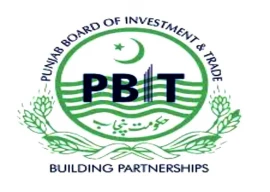
Pakistan’s bid to launch exchangeable bonds in international capital markets will disqualify the country from an anti-poverty concessionary loan from the International Monetary Fund (IMF), reducing the choices to non-concessionary credit programmes.
Ministry of Finance officials told The Express Tribune that Pakistan will not qualify for the Extended Credit Facility (ECF) programme, formally known as Poverty Reduction and Growth Facility, due to its exposure to the global financial markets. ECF is a concessionary facility with stringent conditions.
Last week, Pakistan and IMF discussed the option of a second loan programme to pay off the debt obtained under the $11.3 billion Standby Arrangement struck in November 2008 to avoid defaults on international payments. The focus of the talks remained on restoring the suspended programme and bridging it with a new one.
Both sides could not reach a common ground over the status of the suspended programme, which has to be determined before taking the new programme case to the IMF Executive Board. Pakistan and IMF were also unable to agree on a date for the upcoming visit of an IMF mission to Islamabad, which a source attributed to “security reasons”. There is a possibility that the team may come in May to decide broader parameters of the next budget.
In 2007, Pakistan entered world financial markets when former prime minister Shaukat Aziz floated a $750 million Euro bond. The government is planning to float 10 per cent of its share in the Oil and Gas Development Company in the international market to raise $1 billion. The money is being sought to pay off inter-corporate debt that has once again surged to Rs178 billion.
Due to exposure to international capital markets, Pakistan can either qualify for Extended Fund Facility (EFF) or Extended Standby Arrangement (ESA), said the relevant quarters, adding that the government may opt for EFF.
Given the structural reforms to correct deep-rooted weaknesses often take time to implement and bear fruit, EFF is longer than most fund arrangements. IMF remains engaged with the member country during the design and implementation of adjustment policies.
EFF is typically for three years, with the possibility of extending it to a fourth year. There is also a longer repayment period of up to 10 years, with each disbursement repaid in 12 equal semi-annual installments. This will provide breathing space to the government, which will begin repaying the IMF loan from 2012, and the $8 billion Paris Club loan from 2016. In contrast, the Standby Arrangement is of shorter duration of up to two years, with a repayment period of up to five years.
Additionally, IMF applies normal interest rate on EFF and lends 200 per cent of the quota to a member country, which comes to around $3.3 billion in Pakistan’s case. However, the fund may extend the ceiling under exceptional circumstances.
“If and when Pakistan wants to go for a second IMF programme, the size should not be more than 100 per cent of the quota ($1.65 billion),” said Ministry of Finance General Debt former director Dr Ashfaque Hassan Khan.
Since 1990 Pakistan has signed 11 programmes with IMF, out of which two were EFF. Both remained inconclusive, as Islamabad could not fulfill the conditions. The first EFF was signed in February 1994 that ended prematurely in December 1995, while the second programme was struck in October 1997, but met the same fate in October 2000.
Published in The Express Tribune, April 22nd, 2011.

















COMMENTS (5)
Comments are moderated and generally will be posted if they are on-topic and not abusive.
For more information, please see our Comments FAQ